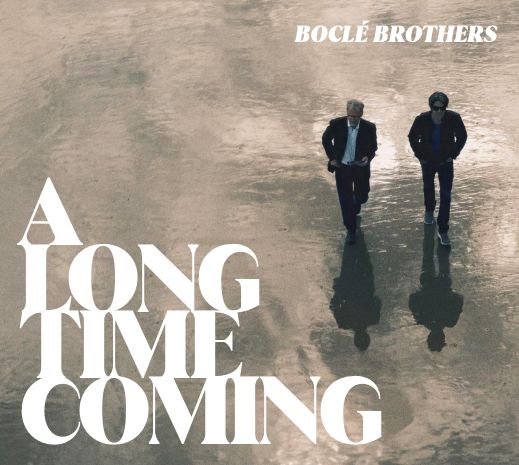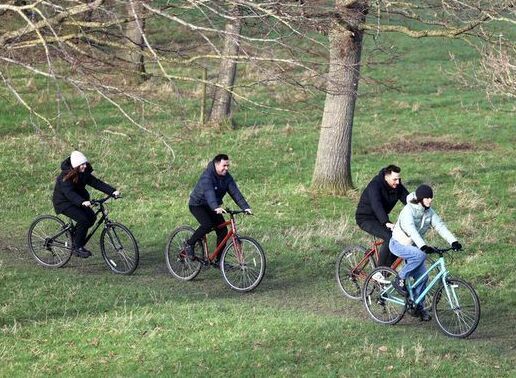A bit of a trad-adjacent column this week! First bit of news is the announcement that the Cork International Choral Festival’s 2025 Seán Ó Riada Composition Competition is now open. Named for the highly influential composer whose work, including pieces like “Nomos No. 1: Hercules Dux Ferrariae,” film scores like “Mise Éire,” and the group Ceoltóirí Chualann (which led to the Chieftains), had a profound impact on Irish music over the years, the competition was founded in 1972. Conceived as a way of recognizing Ó Riada’s life and work, it invites composers based or born in Ireland and honors new work and Ó Riada’s legacy through a trophy, a cash prize, and a world premiere, this year by Chamber Choir Ireland at St Fin Barre’s Cathedral at the Cork International Choral Festival on May 2, 2025.
The submission deadline for the Seán Ó Riada Composition Competition is Dec. 6. For more information about the compositional parameters, presentation format, and application process, visit here.
In the media player this week is “A Long Time Coming” by the Boclé Brothers. From Rennes, Brittany, Gildas and Jean-Baptiste Boclé have been known for their blend of jazz and celtic musics since the 1990s, noted, in particular for the prominent role uilleann piping plays in their music. While fans of pure drop traditional music might puzzle over the utility of such an approach, what it does is put an intense spotlight on an instrument that has amazing possibilities, pulling it into a wider conversation about music making in general.
The musicians here are Gildas Boclé (bass), Jean-Baptiste Boclé (vibes, organ, mallet kat), Donny McCaslin (tenor sax), Marcello Pellitteri (drums), Simon Bernier (drums, select tracks), and also guests including Anxo Lorenzo (gaita, a type of bagpipe), Davy Spillane (uilleann pipes), Andy Ezrin (organ & piano), and Claire Cushman (voice). The album’s main uilleann piper is Loïc Bléjean, a superb musician I’ve written about here several times, including in the context of the album he made with bouzouki player and singer Tad Sargent and the music he’s made with the band Réalta.
It should be stated from the top that for the Boclés none of this uilleann piping/celtic influence business came around hastily. As developing teenaged musicians, they took a keen interest in celtic music, in particular the bombard and bagpipe playing of the great Breton musician Alan Stivell, which led to a period in which they composed with those instruments in mind. But then, in the mid-1990s, Gildas fell in with French jazz guitarist Jacques Pellen and appeared on his album “Celtic Procession,” which featured Breton bagpiper Patrick Molard on uilleann pipes. This inspiration led to a new direction and another album “Celtic Tales,” with Jean-Baptiste on organ and Ronan Le Bars on uilleann pipes. Then, in 2000 the Boclés made “Celtic Tales Pas An Dour” (which featured a guest appearance from jazz legend Michael Brecker) that again featured Le Bars and fellow Martin Nolan on uilleann pipes, and they continued their association with Le Bars (as Boclé Brothers Keltic Tales) on their 2010 album “Crossroads,” which also included the piping of Sylvain Barou.
In the early 2010s, the Boclés invited Bléjean into their world and to play on their 2015 album “Rock the Boat.” The kernel of that quartet, which included the Boclés, Bernier, and Bléjean, is the basis for the group that appears here.
Musically, it’s hard to categorize the Boclés’ various celtic projects. Each one is jazz based with a world music slant that gives their albums a degree of stylistic congruity. In them, the way they employ the uilleann pipes showcases their versatility. “One of the great advantages of the uilleann pipes over other bagpipes,” Gildas wrote in the album’s promotion, “is that it can stop playing without interrupting the airflow; it also has a two-octave register and a system of additional ‘pipes’ [the drones and regulators] that can provide more – or less – rich accompaniment.”
The Boclés give Bléjean the freedom to explore these advantages throughout this album. “Square One,” its opener, moves through a lot of musical areas and metrical changes, leading to solos from the McCaslin (sax, whose playing here reminds me of Steve Lacy’s) and Jean-Baptiste (vibes). But in the arrangement, the pipes are used to give the head detail and depth, giving Bléjean the space to show off his technical skill – he handles the complex lines he’s given with relative ease. Bléjean does similar work on a track like “Hot Pipes,” where the pipes play a similarly complementary role in the arrangement. So, while the vibes, organ and sax all take solos here, the pipes signal shifts in tempo and mood, giving the track a unique spin.
On “Long Time Coming” and “Along the Way,” the pipes handle the main melodic duties. On the former, Bléjean plays lyrically, pairing with the organ and bass in a way that feels recognizably Irish – almost a slow march or air of sorts. The latter begins with an introduction that features an interplay between the pipes and bass that reminds me a bit of the way guitarist Kenny Burrell and bassist Paul Chambers get along in the intro to “Yesterdays” from Chambers’ album “Bass on Top.” Once again, the playing is quite lyrical, with the pairing of the bass and pipes really quite nice and the open-ended nature of the tune itself adding to the track’s interest.
“More Cowbell” has a different sort of feel to it entirely. A complex tune rhythmically – the head marches along with an even cowbell over a shifting rhythmic feel – the arrangement gives solos to McCaslin and Jean-Baptiste, with one for Bléjean thrown in the middle. He stretches out and takes full advantage of the opportunity, giving us some wonderful lead playing that really explores the chanter’s range. It’s great music.
Yes, “A Long Time Coming” is a bit of a change of pace for this column’s readers, but no harm in bringing some deserved attention to music that embraces one of Irish music’s great instruments in so well a way – this is truly sophisticated music that will surely interest lovers of Irish music. “A Long Time Coming” is available to stream on all the major sites; to learn more and support these great musicians, visit the Boclé Brothers website here.








